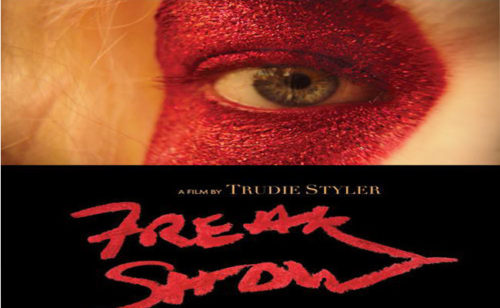Film Journal
Film Review: Freak Show
Although it has its serious, even harrowing moments, this quirky, glitteringly gussied-up treatise on teen bullying keeps things likeably frothy and delivers nicely on both entertainment and emotional fronts.
By David Noh Jan 12, 2018

The hallways of high school in the Deep South constitute something like the Stations of the Cross for young, flamboyantly cross-dressing Billy Bloom (Alex Lawther), who has been taken from his alcoholic Connecticut mother, Muv (Bette Midler), by his far more conventional and less fun dad (Larry Pine). In a sharp departure from the East Coast (“where,” in our hero’s words, “Chloë Sevigny is from”), the teenage yahoos at Billy’s new home as a senior hate anything unusual or even vaguely transgender. The daily bullying—amidst barrages of spitballs—is pretty ferocious.
Despite the shameful indifference of the faculty, this Bloom refuses to be some suicidal shrinking violet and repeatedly pays a terrible price as he seeks the self-destructive spotlight for himself, impersonating Zelda Fitzgerald as a convulsing, immolated flapper-victim for a book report and even running for homecoming queen against his loathed Queen Mean Girl rival (Abigail Breslin, brimming with Dixie spitefulness).
Trudie Styler, the gifted actress, producer, philanthropist and wife of rock god Sting, makes her feature directorial debut here, adapting her story from a memoir penned by former notorious New York City club kid James St. James. It’s a winsome and quite winning take on the now almost ubiquitous topic of teen bullying. I, for one, far prefer it to the overpraised, no doubt soon-to-be-a-major-motion-picture Broadway hit musical, Dear Evan Hansen. Instead of saturating itself in the excessively maudlin, like that show, Freak Show positively basks in the restorative qualities of outsider glamour, which many a queer kid (this writer included) embraces as an escape from all the teasing and torment. Given his handy way with a needle and thread, as well as Daddy’s deep pockets and Mommy’s status as an unapologetic fashionista, Billy is able to wow with more costume changes than a Cher concert, paying witty homage to mermaids, Goth brides, David Bowie, Boy George and Uma Thurman in Pulp Fiction. Dante Spinotti’s luminous cinematography and the terrific costumes by Colleen Atwood magically transform the gifted and chameleonic Lawter, who can look Hedy Lamarr-gorgeous one second and Black Lagoon Creature-grotesque the next. Also extremely efficacious is one of the best-curated music scores I’ve ever heard, with the 1977 French hit “Ça plane pour moi” by Plastic Bertrand getting an especially rousing workout.
That last song accompanies an exhilarating romp with Billy and Mark (Ian Nelson), the school’s football star who, a closeted artist himself, becomes one of Billy’s only two friends. Nelson is, if anything, even more winning than Lawther. He’s a true star in the making, boasting perfect James Dean features and an irresistibly adorable personality that goes a long way to making credible this unlikely buddy pairing. Styler has cast her movie impeccably, with charming chatterbox AnnaSophia Robb as Billy’s other friend, the aptly named Blah Blah Blah (because Billy never quite catches her real one), and wonderful character actress Celia Weston, who as Billy’s housekeeper lends a whole lot of heart to the proceedings. Pine, one of New York’s finest stage actors, brings welcome and quite touching gravity. Midler, whose appearance is relatively brief, makes the very most of her scenes as a mom who seems like but is not exactly your perfect Auntie Mame for a troubled, fey youth.
Click here for cast and crew information.






